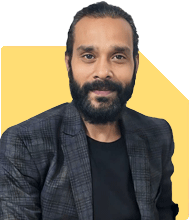Dear Sir/Ma'am,
I need some guidance and advice for continuing my mutual fund investments. I am a 36 year old male, married, no kids yet and no debts/liabilities as such. I have couple of savings in PPF, NPS, Emergency funds and long term investing in direct stocks. I recently started below mentioned SIPs for long term to grow wealth. Request you to review the same and let me know if I should continue with the SIPs or need to rationalize. Kindly also advice on how to invest a lumpsum amount of around 6lacs.
invesco small cap 2000
motilal oswal midcap 2700
parag parikh flexicap 3000
HDFC flexicap 3100
ICICI prudential largecap 3100
HDFC large and midcap 3100
HDFC gold etf FOF 2000
ICICI Pru equity and debt fund 3000
HDFC balanced advantage fund 3000
nippon india silver etf FOF 2000
Ans: You already built a solid foundation. Many investors delay planning. But you started early at 36. That gives you a strong advantage. You have no liabilities. You have long term thinking. You also have diversified savings like PPF, NPS, Emergency funds and direct stocks. That shows clarity and discipline. This approach builds wealth with less stress over time.
You also started systematic investments in equity funds. That is a positive step. Your selection covers multiple categories like large cap, mid cap, small cap, flexi cap, hybrid and precious metals. So the intent is right. You are trying to create a broad portfolio. That gives balance.
» Your Portfolio Composition Understanding
Your current SIP list includes:
Small cap
Mid cap
Flexi cap
Large cap
Large and mid cap
Hybrid category
Gold and Silver FoF
Equity and Debt allocation fund
Dynamic hybrid fund
This shows you are trying to cover many segments. But too many categories can create overlap. When there is overlap, you get confusion during review. It also makes portfolio discipline difficult. You may think you are diversified. But the holdings inside may repeat. That reduces efficiency.
Your portfolio now looks like:
Equity dominant
Hybrid for stability
Metals for hedge
So the broad direction is fine. But simplifying helps in long-term habit building.
» Fund Category Duplication
You hold:
Two flexi cap funds
One large and mid cap fund
One pure large cap fund
One mid cap fund
One small cap fund
Flexi cap funds already invest across large, mid, small. Then large and mid also overlaps. So the large cap exposure gets repeated. That may not add extra benefit. But it increases monitoring complexity.
So I suggest rationalising. Keep one fund per category in core. Keep satellite space for only high conviction.
» Core and Satellite Strategy
A structured portfolio follows core and satellite method.
Core portfolio should be:
Simple
Long term
Stable
Satellite portfolio can be:
High growth
Concentrated
Based on your thinking level, you can structure like this:
Core funds:
One large cap
One flexi cap
One hybrid equity and debt fund
One balanced advantage type fund
Satellite funds:
One mid cap
One small cap
One metal allocation if needed
This division gives clarity. You can continue SIPs with review every year. No need to stop and restart often. That reduces behavioural mistakes.
» Your Current SIP List Review with Suggested Streamlining
You can consider continuing:
One flexi cap
One large cap
One mid cap
One small cap
One balanced advantage
One equity and debt hybrid
You may reconsider keeping both flexi caps and both gold silver funds. One of each category is enough. Because too many funds do not increase returns. It complicates tracking.
Precious metal funds should not be more than 5 to 7 percent in your portfolio. This is because metals are hedge assets. They do not create compounding like equity. They act as protection during cycles. So keep them small.
» How to Use the Rs 6 Lakh Lump Sum
You asked about lump sum investing. This is important. Lump sum should not go fully into equity at one time. Markets move in cycles. So use a staggered method. You can invest the lump sum through STP (Systematic Transfer Plan). You can keep the amount in a liquid fund and set STP toward your chosen growth funds over 6 to 12 months.
This reduces timing risk. It also creates discipline. So your Rs 6 lakh can be deployed gradually. You may use 50% towards core equity funds and 30% toward satellite growth category. The remaining 20% can go into hybrid category. This gives balance and comfort.
» Regular Funds Over Direct Funds
One important point many investors miss. Direct funds look cheaper. But they demand deep knowledge, discipline, and behaviour control. Most investors lose more through emotional selling and wrong timing than they save on expense ratio.
With regular funds through a Mutual Fund Distributor with Certified Financial Planner qualification, you get guidance, structure and correction. The advisory discipline protects you during market extremes. That is more valuable than a small saving in expense ratio.
A personalised planner also tracks portfolio drift, rebalancing need and category shifts. So regular fund investing gives long-term benefit and behaviour coaching.
» Actively Managed Funds over Index or ETF
Some investors choose index funds or ETF thinking they are simple and cheap. But they ignore drawbacks.
Index funds or ETF will not avoid weak companies in the index. They will invest whether the company grows or struggles. There is no fund manager decision making. So when markets are at peak, index funds continue aggressive exposure. In downturns also they fall fully. There is no cushion.
Actively managed funds work with research teams. They can avoid bad sectors. They can shift allocation based on market and economy. Over long term, this gives better alpha and stability. So continuing with actively managed funds creates better wealth compounding.
» SIP Continuation Strategy
Once the rationalisation is done, continue SIPs every month without interruption. Pause and restart behaviour damages compounding power. SIP works best when you go through all market cycles. You benefit more during corrections because cost averaging works.
So continue SIP amount. You can also review SIP increase every year based on income. Increasing SIP by 10 to 15 percent every year helps you reach large corpus faster.
» Asset Allocation Based Approach
One key point in wealth creation is having the right asset mix. Equity gives growth. Hybrid gives balance. Metals give hedge. Debt gives safety. Your asset allocation should stay aligned to your risk profile and time horizon.
Since you are young and have long term horizon, higher equity allocation is fine. But as time moves, rebalancing is important. Rebalancing protects gains and restores allocation.
So review your asset allocation every year or during major life events like child birth, home buying or retirement planning.
» Behaviour Management
Many portfolios fail not due to bad funds. They fail due to bad decisions. Selling during correction. Stopping SIP when market falls. Chasing past return performance. These mistakes reduce wealth.
Your discipline so far is good. Continue to stay patient during volatility. Equity rewards patience and time.
» Financial Goals Clarity
Since you have no children now, you can decide your long-term goals. Typical goals may include:
Retirement
Future child education
Dream lifestyle purchase
Health care reserves
When goals are clear, investment purpose becomes stronger. So you can map each fund category to goal horizon. Short-term goals should not use equity. Long-term goals should use equity with hybrid support.
» Role of Review and Monitoring
Review once in a year is enough. Frequent review can create anxiety. Annual review helps check:
Fund performance
Expense drift
Category relevance
Allocation balance
Then adjust only if needed. This progress helps you stay confident and aligned.
» Taxation Awareness
Equity mutual funds taxation rules are:
Short term (below one year holding) taxable at 20 percent
Long term (above one year holding) gains above Rs 1.25 lakh taxable at 12.5 percent
Debt mutual funds are taxed as per your income slab.
So always hold equity funds for long term. That reduces tax impact and gives better growth.
» SIP Increase Plan
You can create a simple plan to increase SIP over time. For example:
Increase SIP at every salary increment
Increase SIP during bonus time
Use rewards or extra income for investing
This habit accelerates wealth. So by the time you reach 45 to 50 years, your investments could reach a strong level.
» Insurance and Protection
Before investing large, ensure you have term insurance and health insurance. If not already done, it is important. Insurance protects wealth. Without insurance, even a small medical event can impact investment plan. So review this part also. Since you are married, cover both.
» Wealth Behaviour Mindset
You are already disciplined. Just keep these simple principles:
Invest without stopping
Review once a year
Avoid funds overlap
Follow asset allocation
Avoid reacting to media noise
This helps you reach long term milestones.
» Finally
You are on the right track. Only fine tuning and simplification is needed. Your discipline is visible. Your portfolio will grow well with structure, patience and periodic review. Use the Rs 6 lakh with STP approach. And continue SIP with rationalised categories.
With time and consistency, wealth creation becomes effortless and peaceful. You just need to stay committed and avoid overthinking during market movements.
Best Regards,
K. Ramalingam, MBA, CFP,
Chief Financial Planner,
www.holisticinvestment.in
https://www.youtube.com/@HolisticInvestment



























